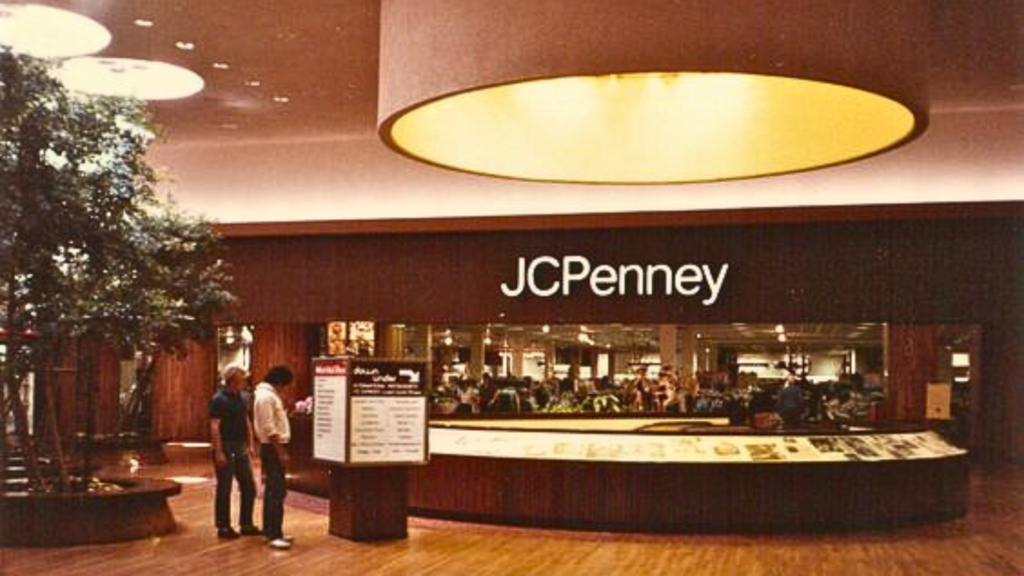JCPenney has announced the closure of several stores nationwide, indicating a shift in the retail industry as online shopping grows. The struggling retailer’s decision raises concerns about the future of in-store shopping and emphasizes the decline of traditional department stores.

The departure of JCPenney from the market raises questions about its implications for investors, consumers, and retailers in general, as well as the factors that contribute to the downfall of established retail giants.
Is JCPenney Closing Stores in 2024 in the USA?
Yes, as part of its ongoing restructuring attempts, JCPenney has stated that it will close four stores in the United States in 2024. This choice reflects the company’s battle to stay competitive in a rapidly evolving retail industry.

The closures reflect not just a change in consumer behavior due to financial struggles but also the growing dominance of online shopping and specialized retailers in the industry. This has major implications for physical stores, and many people are beginning to doubt the sustainability of traditional retail models.
Where Is JCPenney Headquarters Moving?
The JCPenney headquarters in Plano, Texas, has undergone substantial modifications due to the company’s downsizing. The company’s diminishing operations are reflected in the drastic reduction of physical office space, even though the headquarters is not moving in the traditional sense.

JCPenney, which is struggling with financial instability, has also sold off a number of assets, including its headquarters building, as part of the restructuring. The downsizing symbolizes the company’s larger problems and those of the retail industry as a whole.
ALSO READ: Shoppers Can Get $500 Payouts From Walmart
JCPenney Closes Last Original Anchor Store in Sikes Senter
JCPenney is apparently closing its store in Sikes Senter as well, marking the end of the mall’s last original anchor store that opened in the mall 50 years ago. The store has signs up announcing a 50% off sale on all merchandise, but they don’t explain why the store is closing.

JCPenney, along with Dillard’s, was one of the first anchor retailers when the mall opened in 1974, having relocated from downtown Wichita Falls. JCPenney’s closure will be a historic first for Wichita Falls, marking the end of its 105-year presence in the city.
JCPenney Shutters Multiple Locations as Part of Strategic Restructuring
JCPenney will close its locations in Wichita Falls, Texas, and Waterville, Maine, by September 22. Next year, those in Annapolis, Maryland, will do the same. The company is focusing on more profitable locations, which is why it is closing some of its stores. However, certain stores in Maryland will stay operational until next year.

JCPenney shoppers in Alabama can still visit the stores that are still open, including those in Alabaster, Dothan, Fultondale, Hoover, Montgomery, Oxford, Prattville, Tuscaloosa, and Trussville. The Sikes Senter Mall in Wichita has already started a liquidation sale, and other locations are expected to follow suit.
Why Did JCPenney Shut Down?
A number of factors, including growing expenses, bad strategic choices, and shifting customer preferences, contributed to JCPenney’s closure. As a result of its ongoing struggles to adjust to the digital age, JCPenney failed to keep up with more agile competitors and e-commerce giants.

The company’s attempts to appeal to a younger audience and modernize its brand were unsuccessful, resulting in falling revenues and growing debt. JCPenney’s failure ultimately resulted from its incapacity to innovate in a rapidly evolving market.
JCPenney Navigates Store Closures and Bankruptcy
In spite of recent closures, JCPenney still runs about 660 locations nationwide, catering to a loyal customer base. The retailer, which filed for bankruptcy protection in May 2020, has downsized from its previous 850 locations, citing the pandemic’s financial impact.
Despite its challenges, the company is still quite prominent in the retail industry, proving its adaptability and resilience to changing market conditions.
J.C. Penney’s Recent Closure Strategy and Ownership Shift
In September 2020, J.C. Penney was acquired by Brookfield Asset Management and Simon Property Group for approximately $800 million after closing over 200 stores and restructuring its debt.

The acquisition sought to protect the anchor tenants in Simon Property Group’s malls, even though the company owed over $4 billion. But none of the four upcoming closures will occur in Simon malls. Significant closures are also occurring at Bob’s Stores and Express, among other retailers.
What Is JC Penney’s Strategy?
JCPenney’s strategy in its final years focused on rebranding and modernizing its offerings. The company updated store layouts, improved its web presence, and changed its inventory mix to appeal to younger customers.

These initiatives, though, were too little, too late. Customers were not drawn to the concept, and the business was unable to stop losing money. With its closure, JCPenney’s misguided approach should serve as a lesson to other retailers dealing with similar challenges.
ALSO READ: Amazon Lures Back Erstwhile Customers With 30% Discount on Groceries
Struggles of Department Stores Amid Online Retail Boom
Many other department stores have also experienced financial challenges. Macy’s, Kmart, and Sears have also had to close many locations. Department stores are finding it difficult to compete with online retailers, indicating a change in how and where people choose to shop.

In 1991, Sears opened a third anchor store, building an addition to the mall. Due to financial problems, the renowned retailer closed that location in 2015. Its space was taken over by an At-Home home décor store.
How Will JCPenney’s Closure Affect Lease Terms?
The closure of JCPenney will have significant implications for lease terms across the retail industry. Since JCPenney operates a large number of anchor stores in malls, other tenants’ leases may need to be renegotiated as a result of its closure.

Mall owners might have trouble replacing the empty spaces, which might result in reduced rent and adjusted lease terms. JCPenney’s departure may have a cascading effect on the commercial real estate market, affecting retailers as well as landlords.
What Happens to JCPenney Employees After the Shutdown?
JCPenney’s closure will greatly impact its employees, as many will face job loss and uncertainty. The company’s closure is expected to result in thousands of layoffs, forcing those affected to look for new jobs in a difficult labor market.

The circumstance draws attention to the larger problem of job security in the retail sector, where employment stability is still in danger due to increasing store closures and industry mergers. The future is uncertain for JCPenney employees, so finding other jobs will be a top concern.
You Might Also Like:
Five Secrets Behind Ferrari’s Success as a Luxury Brand
Zeekr, Chinese EV Maker, Claims Its New Battery Outpaces Tesla in Charging Speed
Delta Airlines Report $380 Million Revenue Loss Due to Chaos Following CrowdStrike Outage
People Flee New Zealand in Record Numbers as Economic Challenges Intensify

